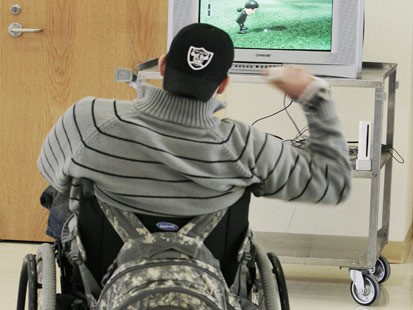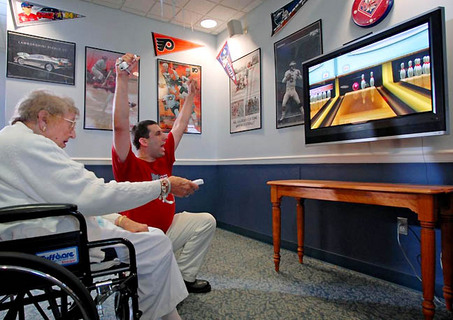
A feature of physical therapy is the tedious repetitiveness of the exercises involved which can turn off even the most determined. So it is great that therapists all over the world have discovered the Wii as a tool which replaces this tedium with fun, thus making the therapy far more effective.
At WakeMed Health in Raleigh, N.C., stroke victim Billy Perry said, “It really helps the body to loosen up so it can do what it’s supposed to do.†Playing tennis and boxing has helped Perry regain strength and feeling in his left arm. Used this way the Wii helps with balance, hand-eye coordination, reflexes and concentration. All whilst the patient is having fun. Clinics using this are also finding that it is great socially. It is great to see medical professionals discovering things that gamers have known for decades. All that has happened is that the Wii interface has made the gaming more accessible to a far wider range of people and by requiring larger actions has increased the physical input necessary.

Wiihabiltation has become, relatively, as big a craze in medicine as the Wii is in the home. Any quick online search comes up with a large number of medical facilities that are doing it. As always the academics are poking their noses in, for instance the University of Minnesota to doing a study that will measure patients’ function before and after their Wiihabiltation. Just like you need academics to tell you what bears do in the woods.
Overall this is fantastic for everyone. For the patients who get better, quicker. For the medical profession who now have a new tool that is very effective and (in the world of medicine) very cheap. And for gaming which can be seen as beneficial to society.
Permalink
It’s all good and worthy, but I, for one, am not happy with what the Wii is doing to our language. Wiihabilitation, Wiimote, Wiicreation…. it’s all just too twii.